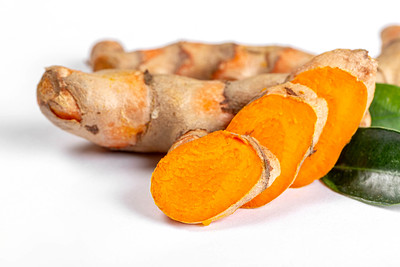Table of Contents
- Can Turmeric be used for reducing inflammation?
- How much turmeric should I take for inflammation?
- How long does it take for turmeric to work for reducing inflammation?
- What is the best time to take turmeric for reducing inflammation?
- Want to know more?
- Sources
Can Turmeric be used for reducing inflammation?
Turmeric can be used to reduce inflammation as curcumin, the main active chemical compound of turmeric, has anti-inflammatory properties, making it a probable treatment for several inflammation-related health conditions, including osteoarthritis, bursitis, plantar fasciitis, and carpal tunnel syndrome.
The anti-inflammatory priorities can soothe the pain caused by these conditions, improve oxygen and nutrient flow, and promote healing.
One study found that taking a turmeric supplement thrice daily had the same effect as taking a 1,200 mg dose of diclofenac daily. However, more clinical evidence is required to establish this claim.
How much Turmeric should I take for inflammation?
The following amount of turmeric intake on a daily basis is recommended for reducing inflammation effectively:
- For long-standing joint diseases such as inflammatory arthritis: 500 mg of turmeric twice daily.
- For high serum cholesterol levels: 700mg of turmeric twice daily.
- For itchy skin: 500mg of turmeric thrice daily.
However, it should be noted that any severe inflammatory condition should always be treated with appropriate medical care.
How long does it take for Turmeric to work for reducing inflammation?
It can take as long as 4-8 weeks for Turmeric to work for reducing inflammation.
Given the nature of turmeric, it is not able to instantly reduce inflammation. Turmeric takes time to effectively build significant amongst of antioxidants in the body, which then help to reduce inflammation.
What is the best time to take Turmeric for reducing inflammation?
As a general rule of thumb, the best time to take Turmeric supplements for reducing inflammation is at the start of the day for most individuals.
However, there is no specific best time to take turmeric for reducing inflammation. This is because it will vary from individual to individual as everyone has different metabolic rates.
In the video below, Dr. Andrea Furlan shows if Turmeric is really helpful to reduce inflammation:
This is our recommended Turmeric supplement (Amazon’s Choice):

Want to know more?
Click the links below to access the individual topic pages:
Sources
This article makes use of information from the U.S. National Library of Medicine under the terms of the Creative Commons Attribution 4.0 International License.
- Shep D, Khanwelkar C, Gade P, Karad S. Safety and efficacy of curcumin versus diclofenac in knee osteoarthritis: a randomized open-label parallel-arm study. Trials. 2019 Apr 11;20(1):214. doi: 10.1186/s13063-019-3327-2. PMID: 30975196; PMCID: PMC6460672.
- Jurenka JS. Anti-inflammatory properties of curcumin, a major constituent of Curcuma longa: a review of preclinical and clinical research. Altern Med Rev. 2009 Jun;14(2):141-53. Erratum in: Altern Med Rev. 2009 Sep;14(3):277. PMID: 19594223.


